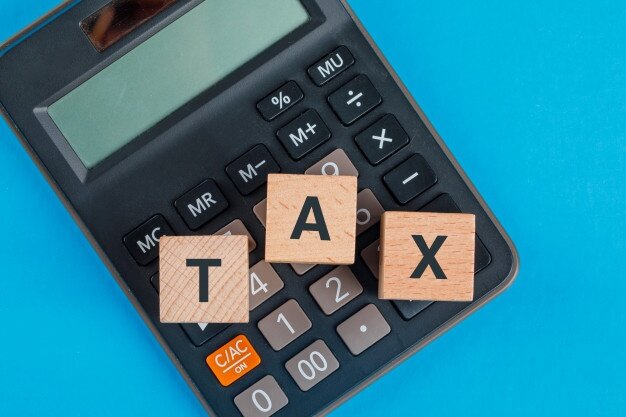
If you are a San Antonio homeowner, you may be wondering if you have to pay taxes when selling your home. The answer is that it depends on the type of property and where you live, for example in San Antonio, Texas no Capital Gain Taxes are required for homeowners who sell their homes below than what they originally paid for it or if the house is your primary residence and you meet certain criteria. However, if this is not the case then you will owe capital gains tax on any profit made from the sale.
For many homeowners, the prospect of selling their home can be quite intimidating. You may think about how to maximize profits and how to market your property, but you should also be concerned with tax implications. Many homeowners are unaware of the tax implications when selling their home.

Even if homeowners have gained tens of thousands of dollars in equity while owning their homes, most can avoid paying capital gains when they sell their house in San Antonio due to a special provision in the tax code known as the “homeownership exclusion.” In fact, homeowners are entitled to one of the most beneficial tax deductions available.
–6 Things you Should Look For to Avoid Paying Capital Gains Taxes when selling your home in San Antonio
1 – What Is Capital Gains, and Why Should You Be Careful about It?

When it comes to the net profits from a house sale. The IRS call these taxes capital gains, and if you sell your primary residence for more than you paid plus improvements, the IRS will look at those profits as taxable income.
The capital gains tax rate for a sell your home is based on an IRS formula that takes into account your regular income tax bracket as well as the amount of time you lived in the house. For example, If your home is worth $100,000 and you sell it for $110,000, you’ll have to pay capital gains tax on the difference of $10,000.
2 – When you sell your home, how much profit you make will depend on a few factors
First, in most cases the capital gains tax only applies to gains of more than $250,000 in sell price or in a joint tax return, a couple can make up to $500,000 the sale of their home tax-free.
Second, in most cases it also does not apply to sell prices that are less than what you originally paid for the house.
Third, it’s important to remember that if you sell your home that is not your primary residence, then all the capital gains tax rules are applicable
At We Buy Texas Houses Now we know this can be concerning for many homeowners, but there are ways to protect yourself from capital gains taxes
3 – How can you avoid paying capital gains taxes when selling your home in San Antonio?
The first thing you should know is that the IRS does not look at your home as an investment, but instead as a primary residence. This distinction protects your home from capital gains taxes when you sell. However, if the home was not your primary residence, if your house is an investment property, capital gains taxes will apply to any profit made from the sale.
Even if your house is an investment property, but if you sell your home in San Antonio after having lived in it as your principal residence for two of the past five years, you can sell it without owing capital gains tax.
This is sometimes referred to as the “two out of five year” test. The two out of five year test is a common source of confusion for San Antonio homeowners, but do not worry too much about it, we can help you out figuring that out, just reach out to us, we will be happy to help.
4 – Saving money will be easier if you keep a disciplined record keeping

When you sell your house, whether or not it is for a profit depends on the cost of acquisition and the costs associated with fixing up the property, so make sure that everything has been documented for simplicity . Though it might seem like a lot of trouble, keeping track of all your documents and receipts will make the process go more smoothly, be sure to File away all your closing documents so that you will have records of your expenses.
5 – What about if I need to sell? Should I worry about Taxes?
Though not everyone has to sell their homes, there are many reasons why they might sell a property. Some of these include a change in life, circumstances such as a divorce or death, moving closer to work, behind in payments, work loss, foreclosure, problematic tenants, house needs to many repairs, etc
It is important to understand that if you need to sell your home, or want to sell in the near future, you should consider reaching out to a home buyer who will present to you the best options for your specific situation, including what to do to avoid paying taxes.
6 – Is it better to sell my home as-is?
It really depends. You might save on time and hassle, but you could end up with thousands in taxes due to the lack of repairs. However if you choose to fix everything in your house and hire a Real Estate Agent to list your property on the market you could ended up paying extra fees, closing cost, attorney’s fees and commissions, not to mention that the average time to sell a house in San Antonio has been increasing considerably, listing your house on the Market is something you can’t accomplish on a short period of time, and you don’t have control over it.
Conclusion
If you need to sell your house in San Antonio but don’t want to pay capital gains taxes, we can help. Turn to us for advice.
Selling your home is a big transaction, regardless of whether it’s for profit or not. So make sure you sell your house right by turning to us for advice that will help you make a better informed decision not just by selling your house quickly and put more money in your pocket but by looking at your specific situation, this way we could suggest you what would be the best way for you to sell your house, pay less to no taxes and help you improving your situation all at the same time. This is why we are known for giving the best offer in town.
We’ve helped countless San Antonio homeowners sell their homes quickly and at the best prices possible taking in mind Taxes.
Hope it helps! Give us a call or reach out to us if you want to ask something about this article. Thank you.

